Listen to Pope Francis preach and you start to notice some patterns. His homilies are not complicated. He speaks in stories and images, and sticks to one simple theme. He does not worry about name-dropping or citing doctrines, texts and authors. He gets the people to laugh.
In short, he is an everyday priest speaking to his parish—just one that happens to be the whole world. This style was on full display in Cuba, where the pope has been speaking in his native Spanish, and nearly half the time, off the cuff.
“Francis’ homilies suspend time and place in wondrous ways,” Timothy Matovina, professor of theology and co-director of the University of Notre Dame’s Institute for Latino Studies, says. “He doesn’t just interpret the Gospel, he allows the Gospel to interpret us, to let the voice of the Lord speak today as it did those centuries ago.”
Central to Francis’ skill as a preacher is his ability to listen to the people he encounters and respond in a way that both honors their experience and meets them where they are. At an evening prayer service in Havana, Sister Yaileny Ponce Torres movingly told Pope Francis about her work with disabled individuals and how she has found God through her encounters with them.
After hearing her words, Pope Francis decided to scratch his planned remarks to instead teach about poverty, and the value of the poor. “Love poverty like you love your mother,” he told the worshippers. “”When one seeks in his interior preferences the smallest, the most abandoned, the sickest, the one no one pays attention to, who no one loves, the smallest one, and serves the smallest one, he is serving Jesus in a superlative manner.”
Read More: Pope Francis Focuses on the Individual in Cuban Mass
Francis also used that moment to give practical instructions to priests who were present, and told them he wants them to treat people who come to confess. “When they show you their misery, please … don’t punish them,” Francis told them. “You have one sole function: the mercy of God.”
When, immediately after, Francis spoke to the youth in Havana gathered behind the church, he made a similar choice. A Cuban youth talk about welcoming others who think differently, and Francis began writing down notes—apologizing to the youths that he was sitting while they stood in the rain, but assuring them that the reason was so he could take notes on what the young man was saying.
Francis encouraged them to build community across their cultural and ideological divisions. He used images from his experience to connect with the group. He told a story from his own experience in Buenos Aires of meeting a group of construction workers—including a Jew, a communist and a Catholic—all working together for the common good.
And he spoke personally. “I’m not sure if in Cuba they use this word, but in Argentina, we say, Don’t be wimpy,” he said. “Open yourselves and dream. Dream that the world with you can be different. Dream that if you give the best of yourself, you are going to help this world be different. Don’t forget. Dream.”
See Photos From Pope Francis' Arrival in Cuba
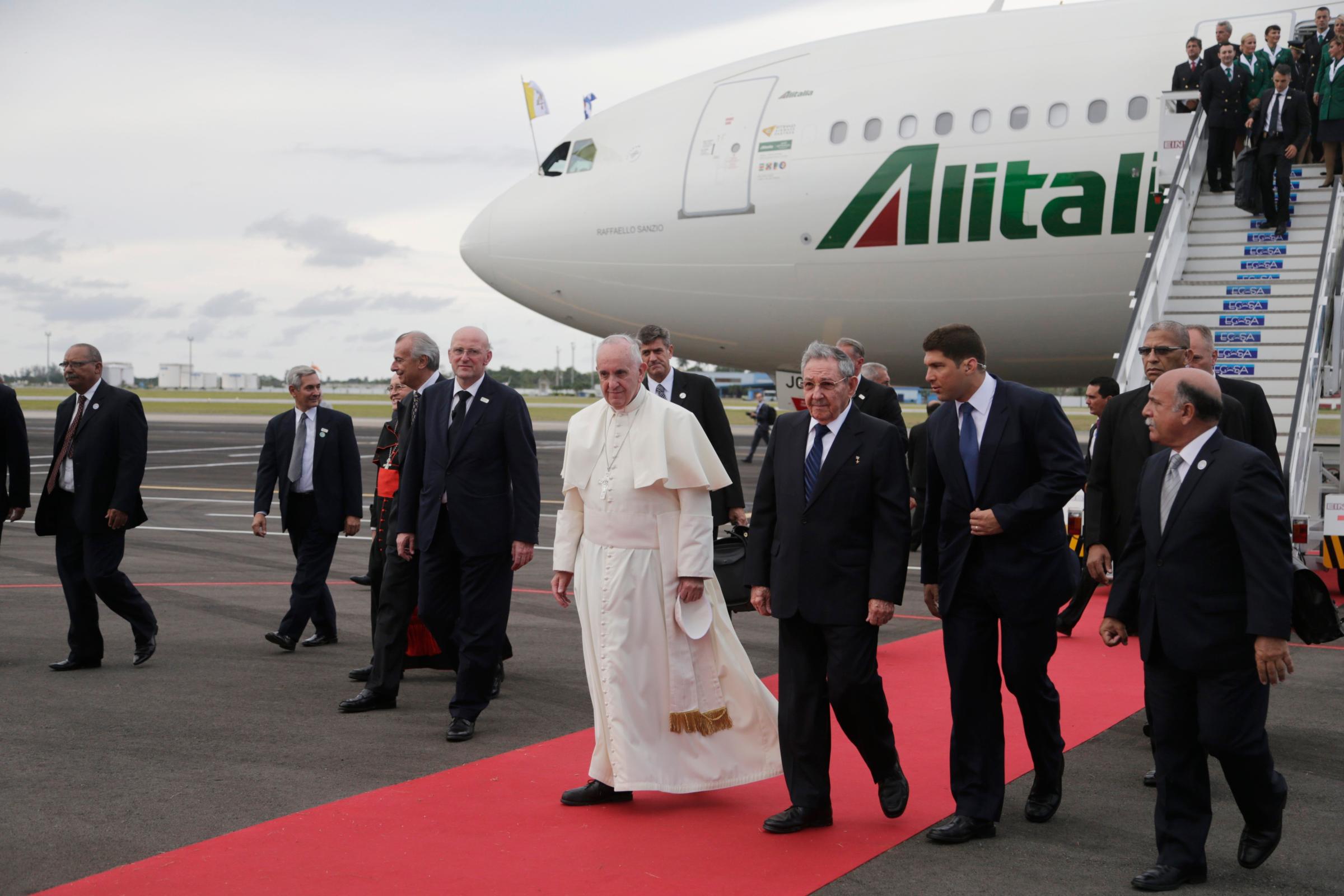
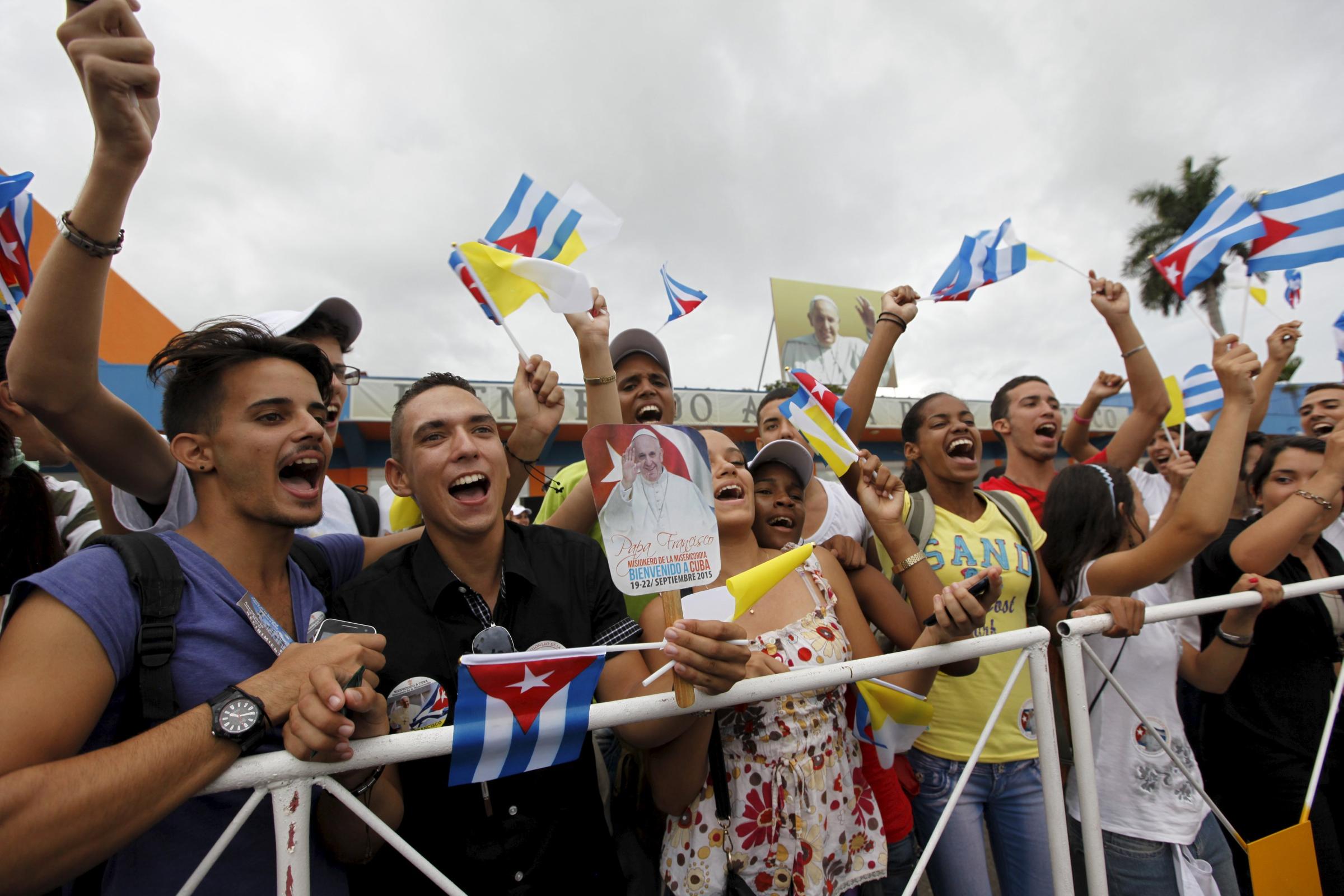
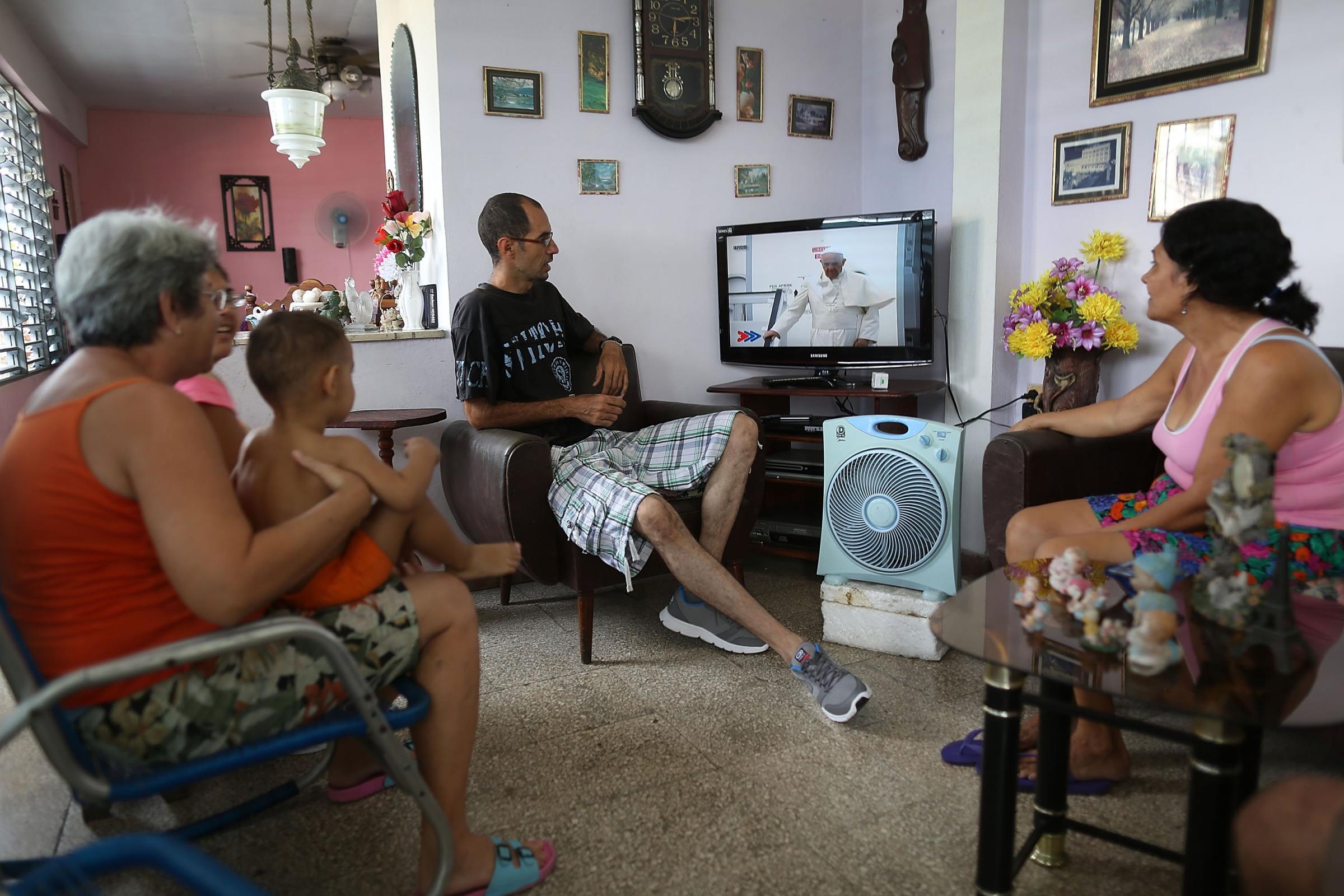
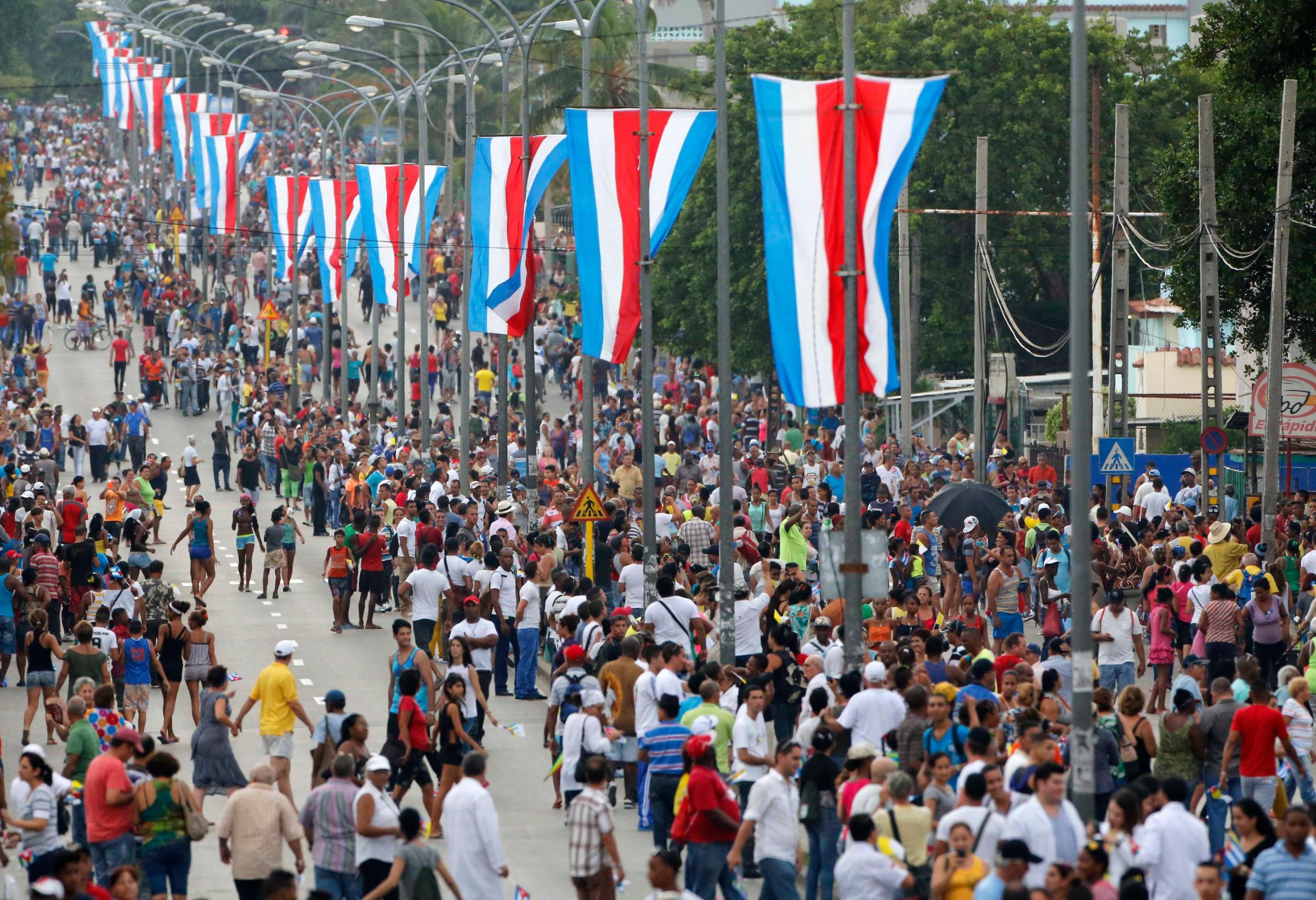
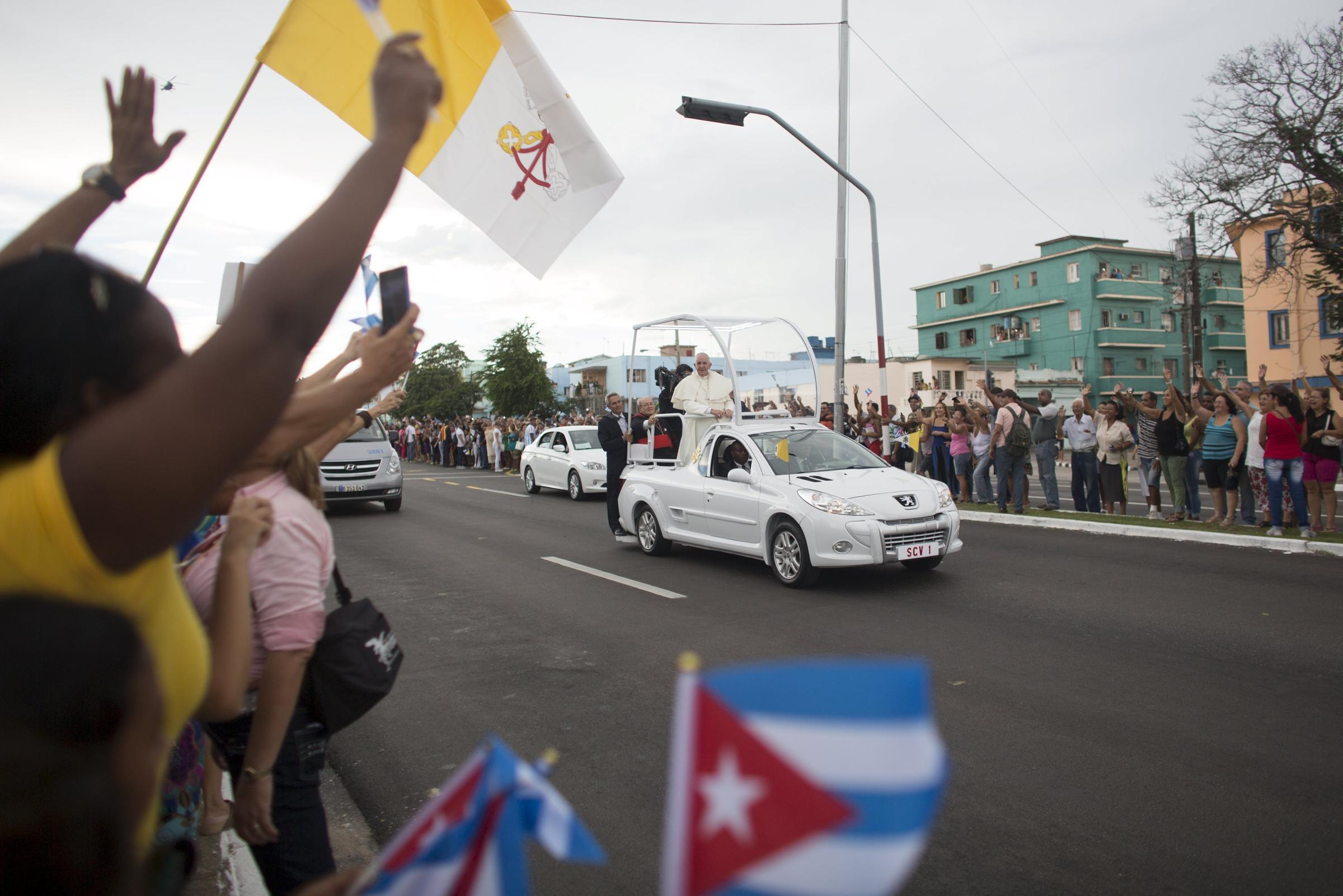
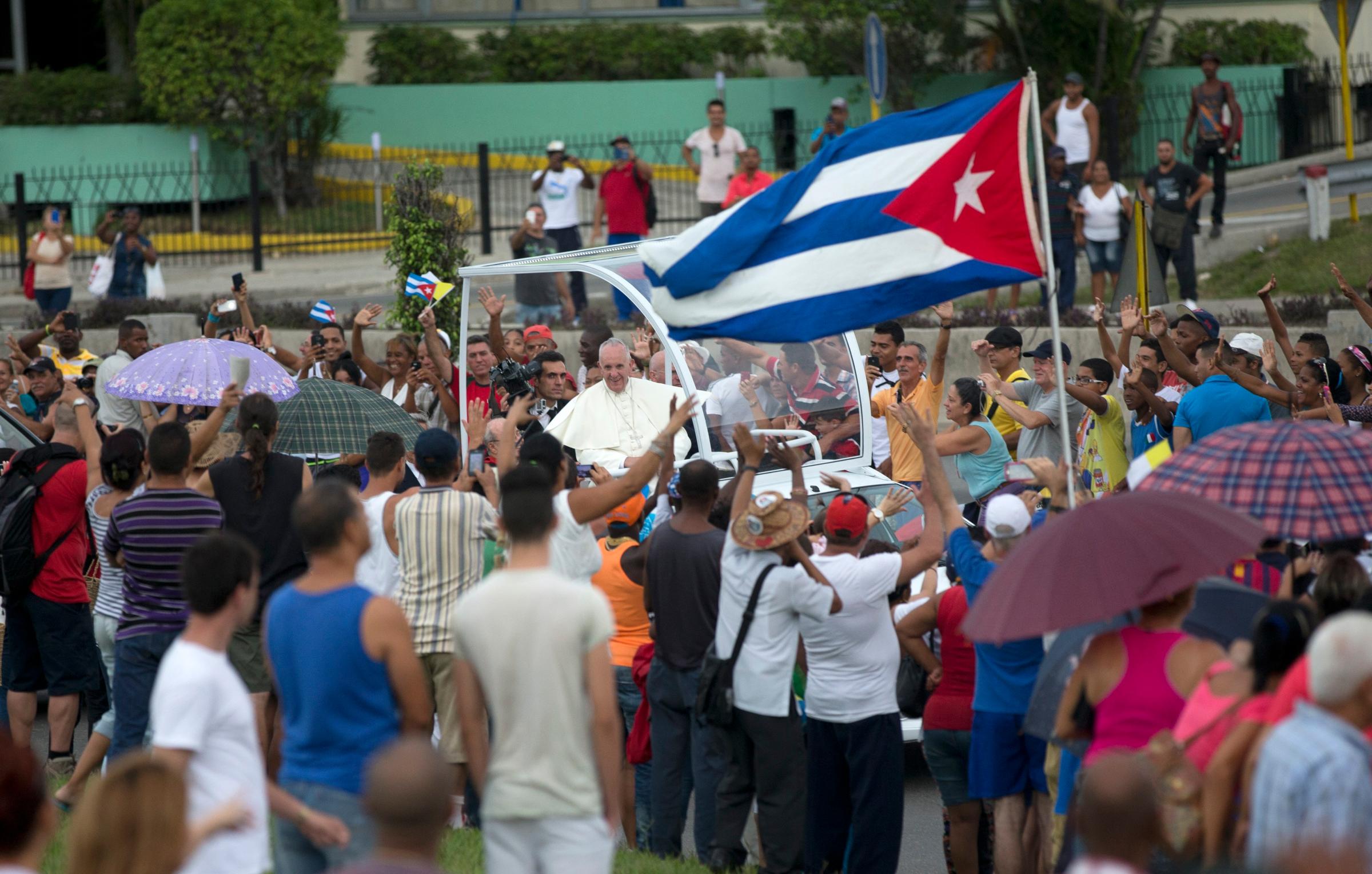
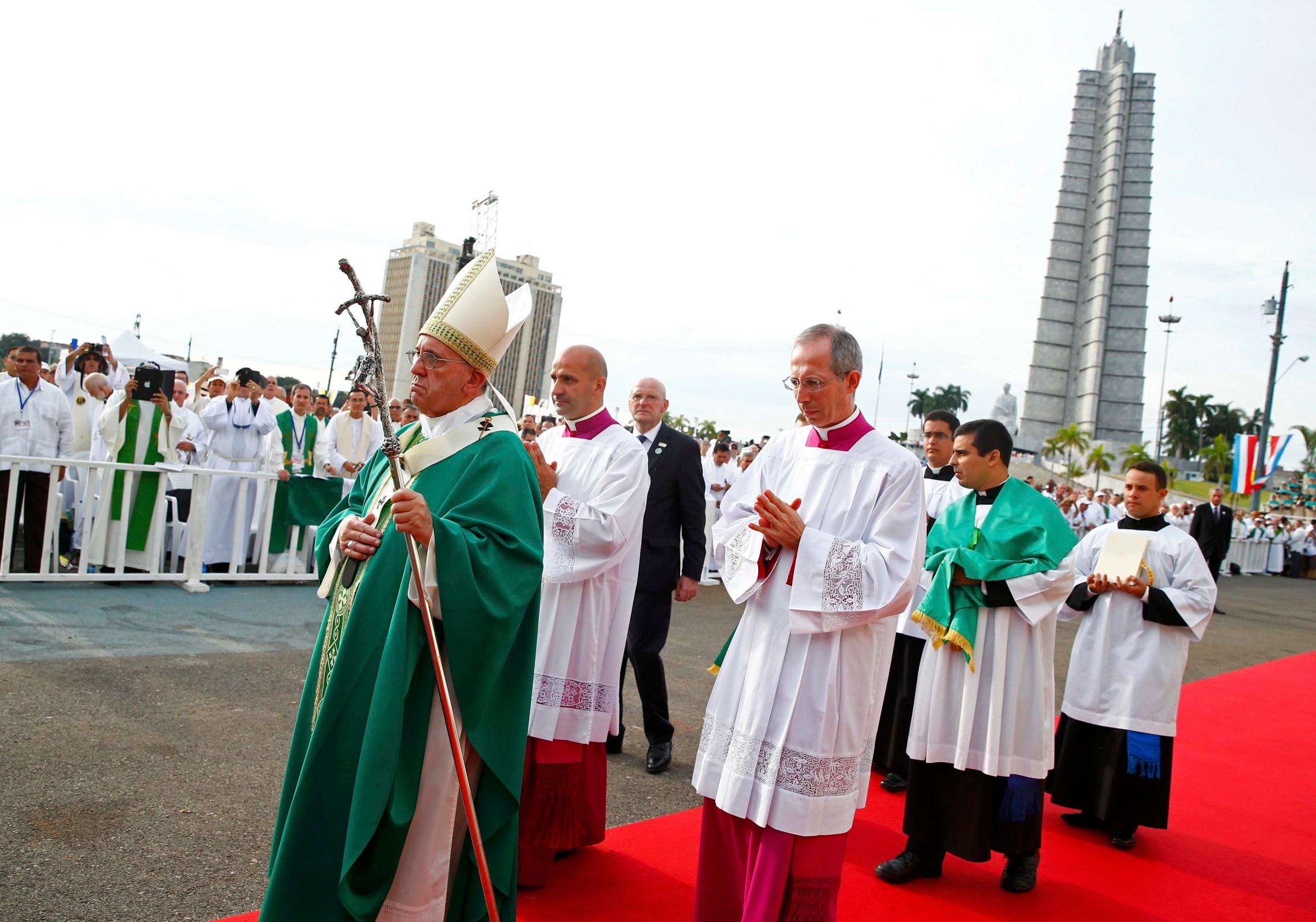
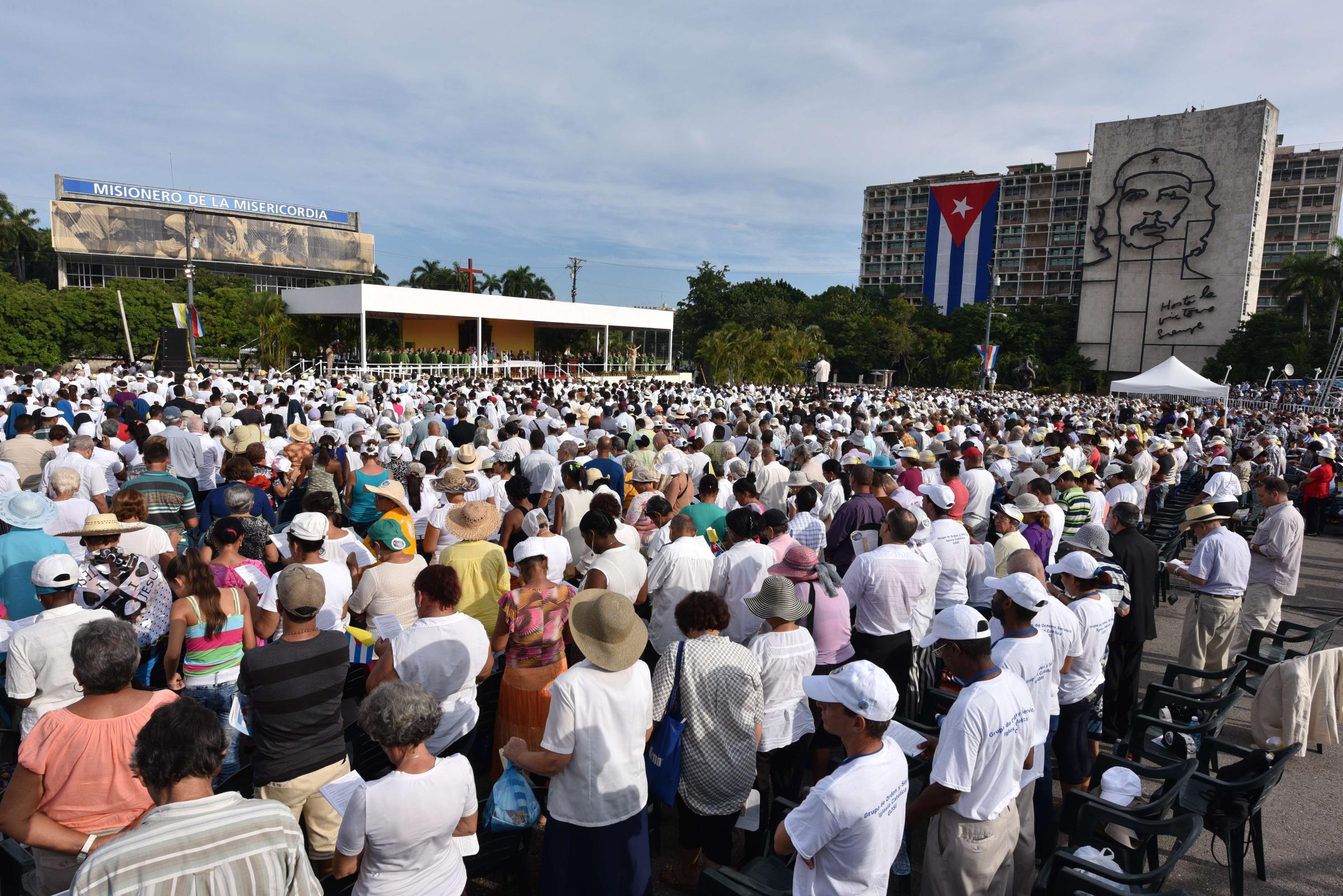
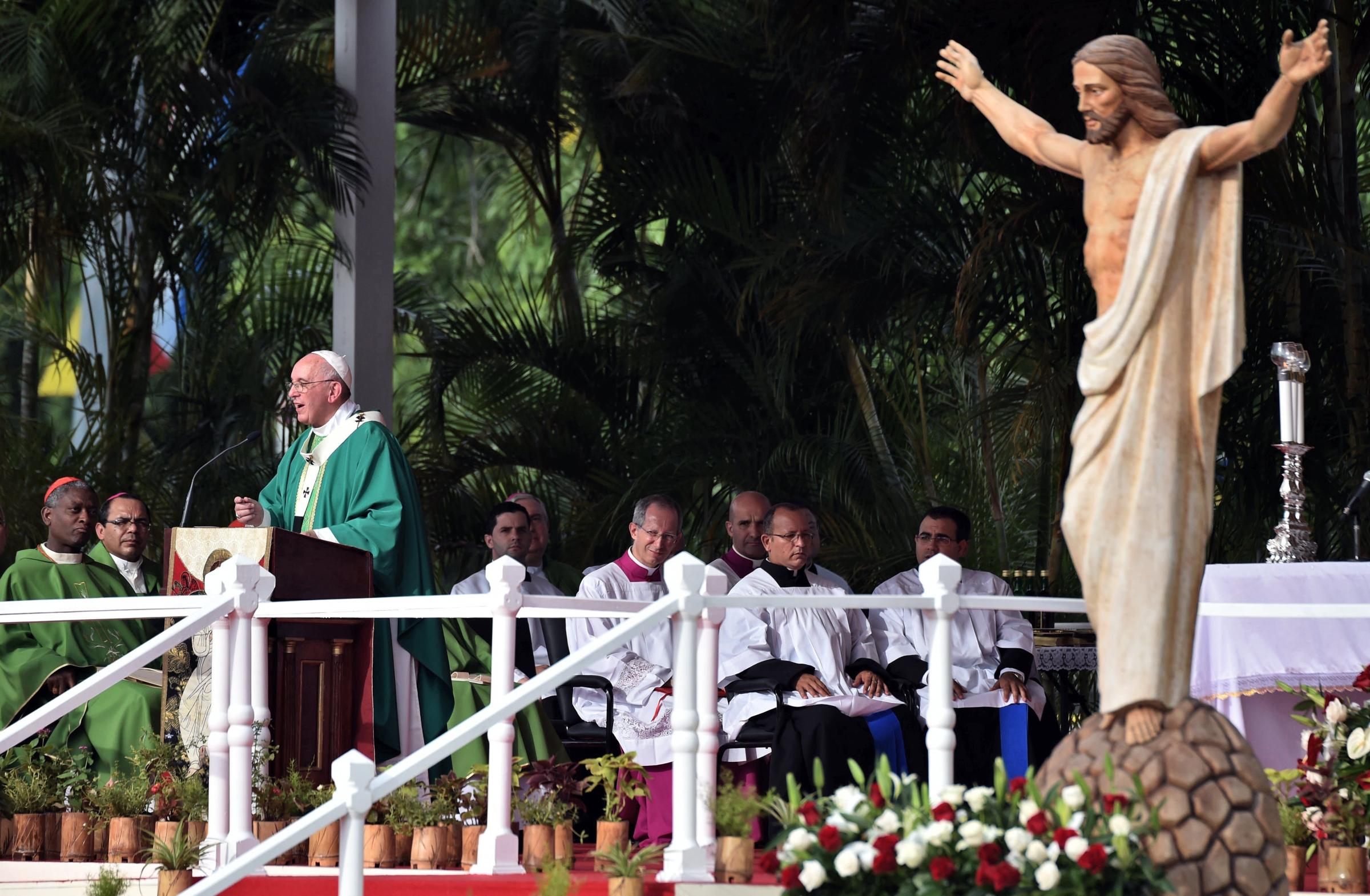
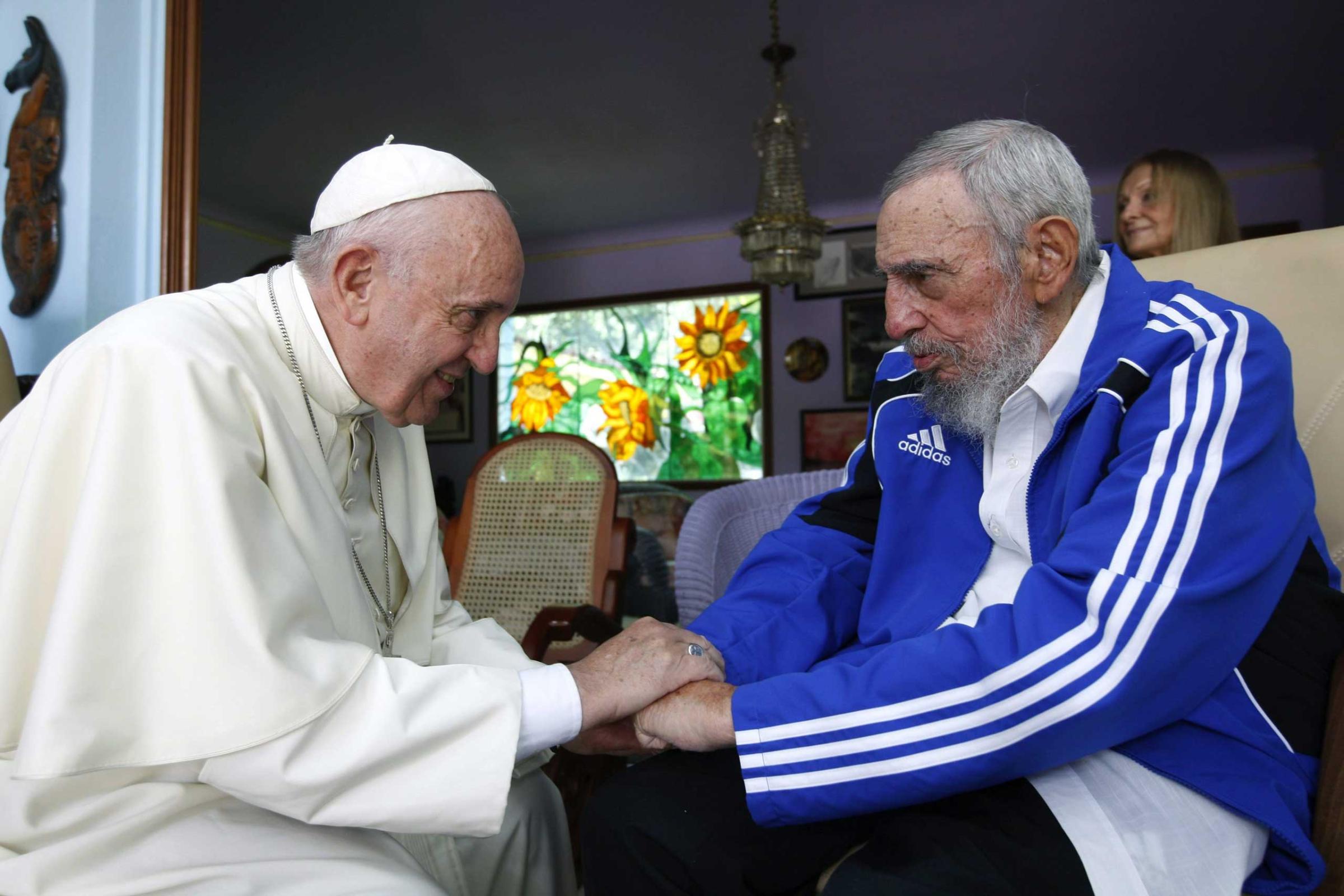
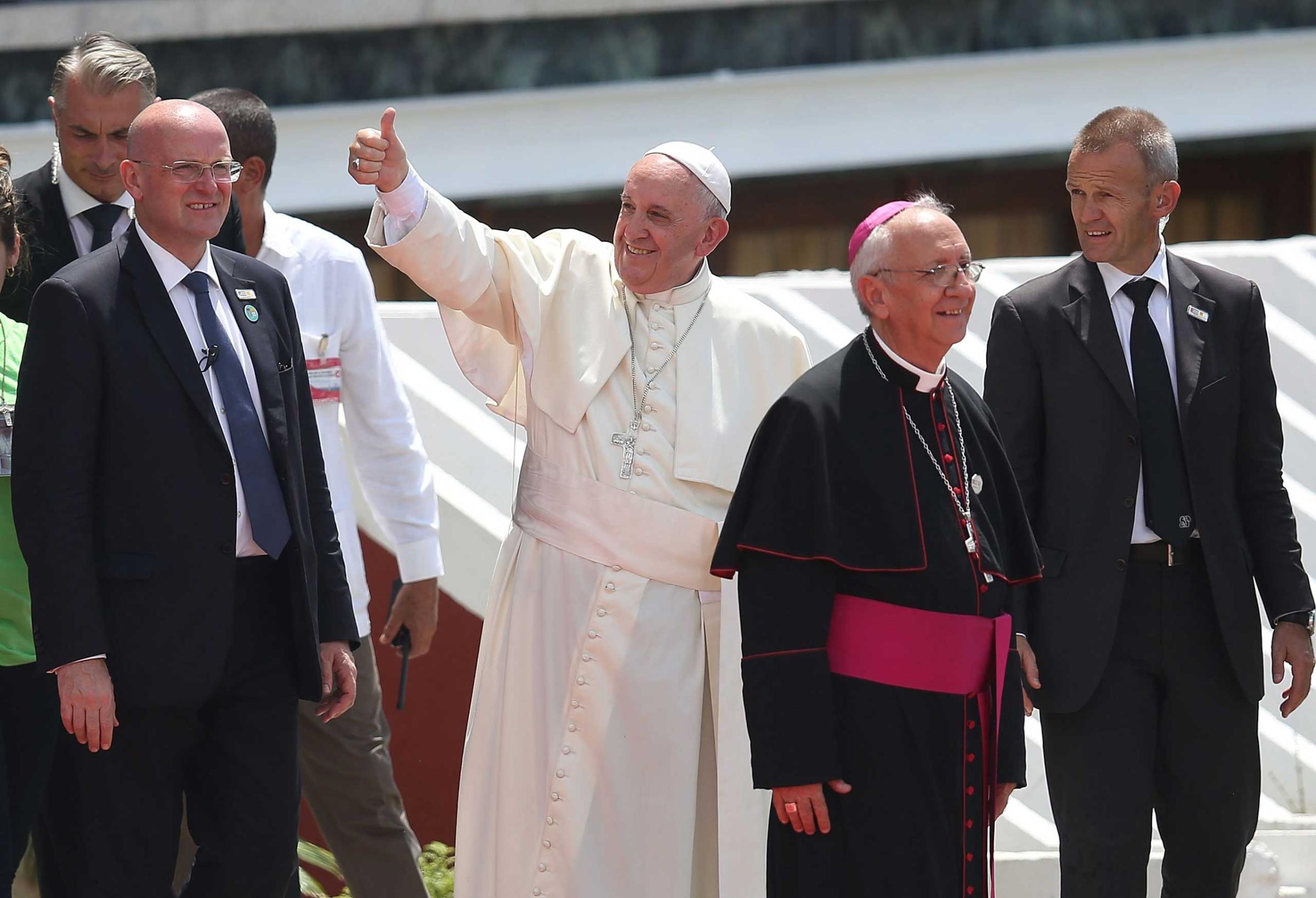
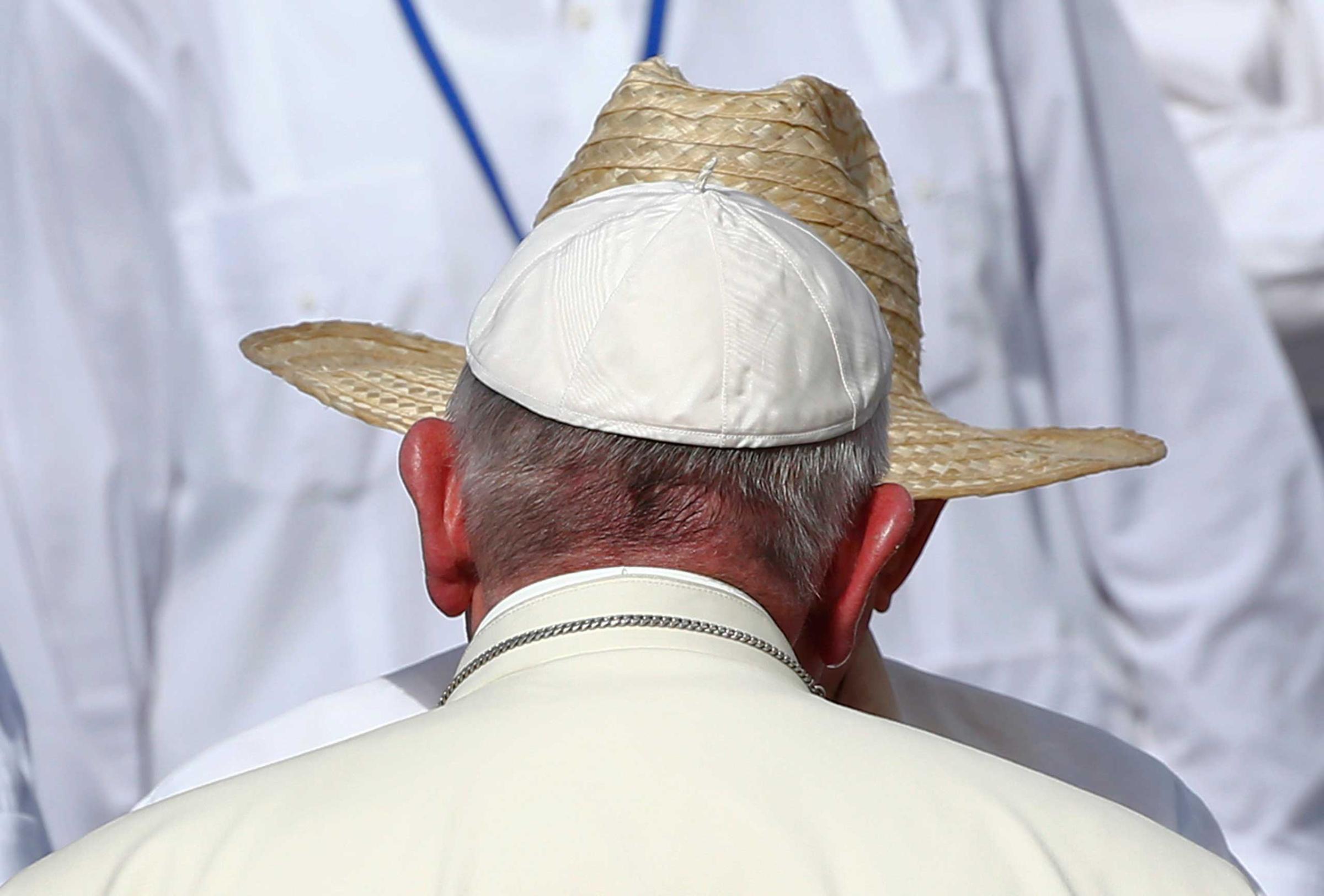
Even his homily at his mass in Holguín on Monday, when he stuck to his prepared remarks, Pope Francis displayed some of his rhetorical flourish. It has the feel of the spoken word versus the written doctrine. And it is one of the reasons that everyday people connect with him.
“[Jesus] invites us slowly to overcome our preconceptions and our reluctance to think that others, much less ourselves, can change,” Francis preached. “He challenges us daily with the question: ‘Do you believe it is possible that a tax collector can become a servant? Do you believe that a traitor can become a friend? Do you believe that is possible that a carpenter can be the Son of God?’”
When Pope Francis visits the U.S. this week, he will give 18 speeches, and only four of them are slated to be in English. The rest will likely be in Spanish. It will be an opportunity for Americans to see up close what the pope’s preaching style is like.
Read Next: Here Are the 5 Controversies Over Pope Francis’ Visit to Washington
More Must-Reads from TIME
- Caitlin Clark Is TIME's 2024 Athlete of the Year
- Where Trump 2.0 Will Differ From 1.0
- Is Intermittent Fasting Good or Bad for You?
- The 100 Must-Read Books of 2024
- Column: If Optimism Feels Ridiculous Now, Try Hope
- The Future of Climate Action Is Trade Policy
- FX’s Say Nothing Is the Must-Watch Political Thriller of 2024
- Merle Bombardieri Is Helping People Make the Baby Decision
Contact us at letters@time.com